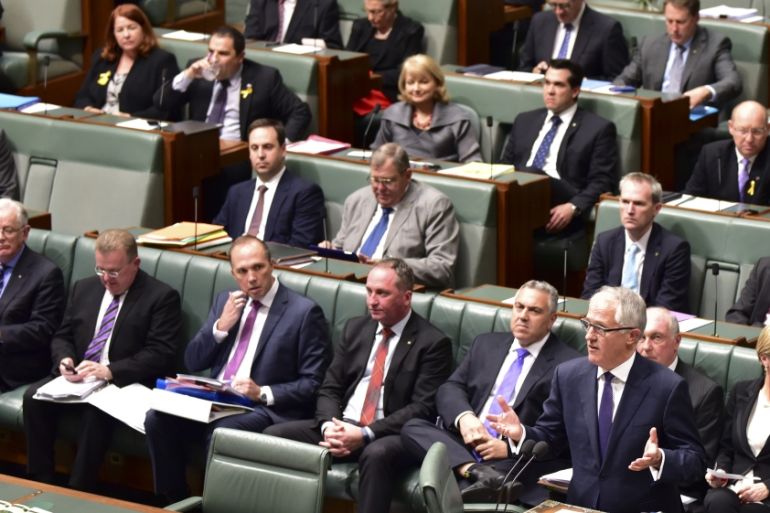An Australian republic ‘could benefit Aborigines’
Leading academic says she backs call for an Australian head of state if sovereignty of indigenous people is recognised.

A leading Australian academic and Aboriginal activist has supported a renewed campaign for Australia to become a republic if it recognises the sovereignty of Aboriginal and Torres Strait Islander citizens and gives them more political representation.
Professor Jakelin Troy, the director of Aboriginal and Torres Strait Islander Research at the University of Sydney, said she “absolutely” supported the notion of Australia becoming a republic but that any new system of governance should correctly recognise that Aboriginal Australians initially owned the country.
Keep reading
list of 4 itemsIndigenous people in Philippines’s north ‘ready to fight’ as tensions rise
Curfew announced for under-18s in Australia’s Alice Springs after unrest
‘We exist’: A Himayalan hamlet, forgotten by Indian democracy
“A republic should include more representation in the parliament and a set of rights equivalent to treaty rights enshrined in law so that Aboriginal people don’t have to continue fighting,” Troy said.
|
|
Australia remains a constitutional monarchy and has been subjected to British rule since it was colonised upon the arrival of Britain’s First Fleet in Sydney Cove on January 26, 1788.
The fleet’s arrival date is widely celebrated in the country with an annual public holiday called Australia Day, but many Aboriginal people mourn the occasion as “Invasion Day”.
On Monday, the eve of this year’s holiday, almost all of the country’s state and federal political leaders released a declaration, organised by the Australian Republican Movement. It called for the country to become a republic, which would replace the United Kingdom’s Queen Elizabeth II with an Australian head of state.
The most recent referendum for independence in the country, in 1999, failed.
‘Not dissimilar to Syria’
Troy said there was a need to recognise that Australia’s Aborigines were the original owners of the country and to acknowledge the “60,000 years of modern human management of this land”.
“People don’t realise that it looks this way because Aboriginal people crafted it this way. Through burning, cropping and harvesting, they crafted this country to a large degree.”
READ MORE: Does Australia have a racism problem?
Troy compared what happened to Australian Aborigines since colonisation to the war in Syria, as it was “a war of people against their own people, but there is a white history that never acknowledges that there was a civil war in this country.
“People were slaughtered, with massacres occurring right up to the middle of the 20th century. Aboriginal people were regarded as vermin and, in some respects, still are,” she said.
|
|
Including Australia’s Aboriginal history in the national education curriculum and making a commitment to preserve Aboriginal and Torres Strait Islander languages – of which only 13 are now spoken daily from at least 250 known languages – were also important steps in recognising the sovereignty of Aborigines, she said.
Torres Strait Islanders are the indigenous people of the Torres Strait Islands, part of Queensland.
Troy said she was hopeful that if more Aborigines were given the opportunity to enter politics, there could even be a prospect of Australia one day having an Aboriginal head of state.
“There are signs that Australia is actually growing up, due mostly to young people who are moderates and are more inclined to support human rights issues.
“Australia now has the stomach to embrace perspectives other than Anglo-Australian.”